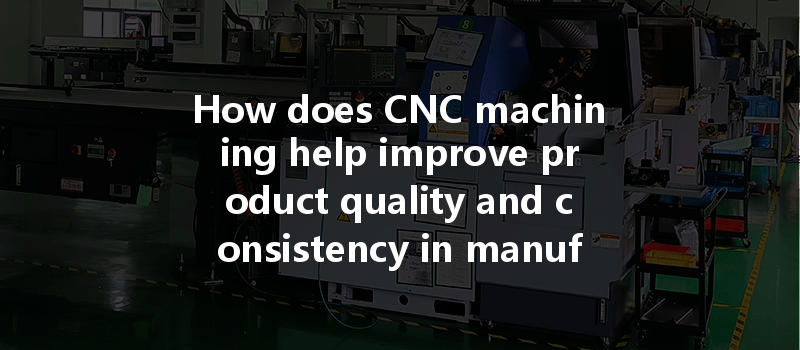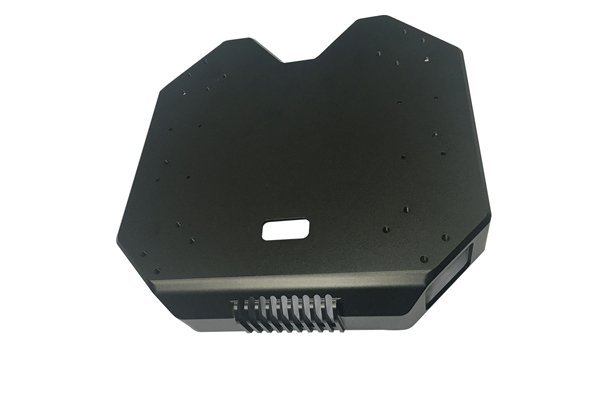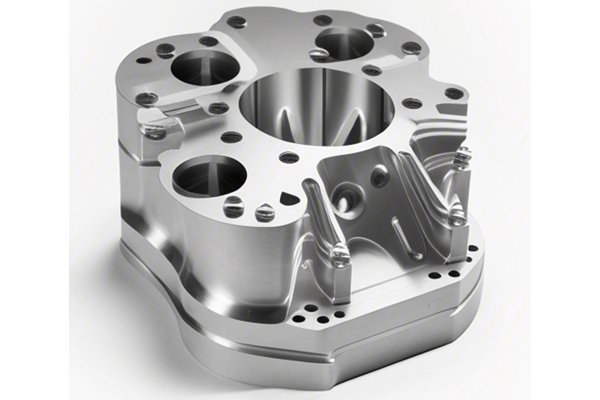Opening
Did you know that a staggering 80% of manufacturing defects are attributed to human error? This alarming statistic underscores the critical need for precise and reliable manufacturing processes in today’s fast-paced industrial environment. As businesses strive for improved product quality and consistency, CNC (Computer Numerical Control) machining has emerged as a game-changer. But how exactly does CNC machining enhance quality and consistency? In this blog, we will explore the intricacies of CNC machining and its profound impact on manufacturing processes.
to CNC Machining
CNC machining involves the use of computer-controlled machines to cut, shape, and finish materials, such as metals, plastics, and composites. Unlike traditional manual machining, CNC machining relies on programmed instructions generated from CAD (Computer-Aided Design) files. This level of automation reduces the risk of human error, resulting in higher quality products.
The Importance of Product Quality and Consistency
Product quality refers to the characteristics and attributes of a product that meet the customer’s requirements, including performance, durability, and reliability. Consistency, on the other hand, pertains to the uniformity of products produced in terms of dimensions, performance, and appearance. High product quality and consistency are essential for customer satisfaction, safety, and maintaining a competitive edge in the market.
How CNC Machining Enhances Product Quality
One of the significant advantages of CNC machining is its precision. CNC machines can operate within tolerances as tight as ±0.005 mm or even better, depending on the specific machine and tooling used. This precision is critical in industries such as aerospace and automotive, where even minor discrepancies can lead to catastrophic failures. By using CNC machining, manufacturers can ensure that each component fits perfectly, reducing the likelihood of assembly errors.
As previously mentioned, human error is a primary cause of manufacturing defects. CNC machining minimizes this risk by converting designs into automated commands that machines can execute without human intervention. Operators primarily oversee the process, intervening only when necessary. This significantly reduces variability, ensuring that each manufactured part is produced with the same accuracy and quality as the last.
CNC machining utilizes various cutting tools and techniques to achieve uniform material removal across components. This uniformity is achieved through programmed movements that dictate the speed, feed rate, and depth of cut. Consequently, manufacturers can create components with smooth surfaces and consistent dimensions, which contributes to overall product quality.
CNC machines can reproduce the same part repeatedly with high fidelity. Once a program is set, manufacturers can produce thousands of identical parts with minimal deviation. This consistency is essential in industries where components are produced in large volumes, such as electronics and consumer goods. It allows manufacturers to maintain inventory levels effectively, knowing that each batch will meet the same quality standards.
Many CNC machining systems are equipped with integrated quality control measures, such as sensors and cameras that check dimensions and surfaces in real-time. This automated inspection reduces reliance on post-production quality checks, allowing manufacturers to detect and correct issues during the machining process, thus preventing defects from reaching the customer.
The advancement of tooling technology in CNC machining also contributes to improved product quality. For example, using high-performance cutting tools made from materials like carbide and ceramic enhances the machining process by extending tool life and maintaining sharpness longer. This durability results in cleaner cuts and increases the overall precision of manufactured parts.
How CNC Machining Supports Consistency
CNC machines are designed to operate under stable and controlled conditions. Unlike manual processes prone to variations due to operator fatigue or skill level, CNC machines deliver consistent performance regardless of external factors. By minimizing fluctuations in operating conditions, CNC machining ensures a high degree of product consistency.

Automation is a hallmark of CNC machining. The ability to reproduce operations with minimal variation is essential for consistency. Automated setups can include multiple machines running simultaneously, producing various components with identical specifications. This repeatability allows manufacturers to scale production without sacrificing quality.
One inherent advantage of CNC machining is the ease with which programs can be modified. If a design change is necessary—whether due to customer feedback or new market trends—manufacturers can quickly update the CNC program without needing to overhaul the entire process. This adaptability supports product consistency while ensuring that changes do not compromise quality.
CNC machining can be adapted to work with various materials, including metals, plastics, and composites. This versatility allows manufacturers to maintain the same level of quality when shifting from one material to another, ensuring that all parts meet predetermined quality standards.
CNC machining processes come with comprehensive documentation, allowing manufacturers to trace production history. This traceability ensures that any issues observed with quality can be traced back to specific batches or machine setups, enabling rapid corrective action. Such documentation is vital for industries adhering to strict regulatory standards.
As companies leverage CNC machining technologies, they often adopt a culture of continuous improvement. With the data collected from CNC machines, manufacturers can analyze performance, identify trends, and implement refinements that lead to further enhancements in quality and consistency. This iterative approach keeps manufacturing processes aligned with customer demands and technological advancements.
Challenges in CNC Machining Quality and Consistency
While CNC machining offers numerous benefits, manufacturers may face challenges that can impact product quality and consistency:
Setting up CNC machines can sometimes be time-consuming and complex, especially when switching from one product to another. Operators must ensure that each machine is calibrated correctly to prevent inconsistencies.
Regular maintenance is crucial for the performance of CNC machines. Any unaddressed wear and tear or malfunctions can lead to quality issues in produced parts. Developing an effective maintenance routine is essential for sustaining product quality.
Although CNC machining reduces the need for highly skilled operators, sufficient knowledge and training are still needed to troubleshoot and optimize the process. As technology evolves, investing in workforce development becomes increasingly important.
To maximize the benefits of CNC machining in product quality, businesses may need to integrate it with other processes in the production line, such as additive manufacturing or traditional machining technologies.
CNC machining has revolutionized the manufacturing landscape by significantly enhancing product quality and consistency. With its precision engineering, reduction of human error, automated quality control systems, and uniform material removal capabilities, CNC machining offers manufacturers the ability to produce superior products consistently.
In addition, the ease of reprogramming, stable operating conditions, and commitment to continuous improvement create a robust environment for ensuring product excellence. As industries increasingly rely on CNC machining, it is essential for manufacturers to embrace these technologies and strategies, as they hold the key to maintaining competitiveness and meeting customer demands in an ever-evolving marketplace.
Ultimately, understanding how CNC machining impacts quality and consistency is not just a technical detail—it’s a strategic consideration for any business aiming to elevate its manufacturing processes and deliver exceptional products. As you explore the world of manufacturing, consider how CNC machining can play a pivotal role in your quality assurance and operational efficiency efforts.






